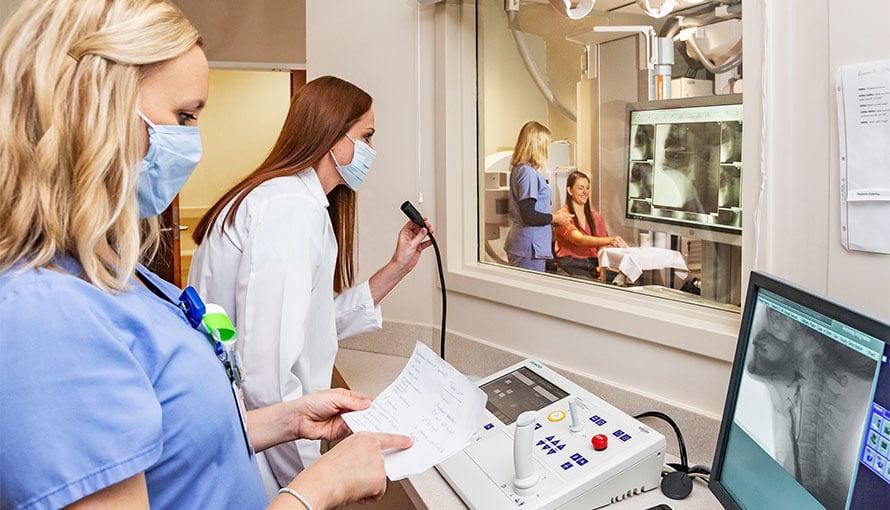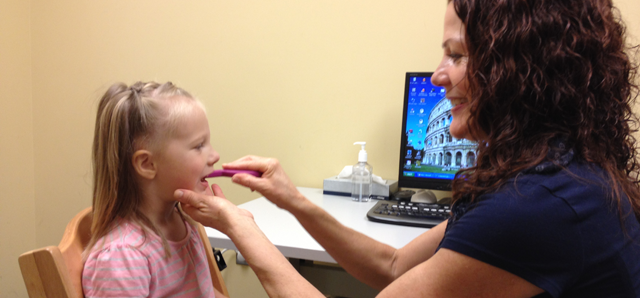What Makes a Great Speech Pathologist? Key Qualities to Look For
What Makes a Great Speech Pathologist? Key Qualities to Look For
Blog Article
Just How a Speech Pathologist Can Help Improve Interaction Abilities
Reliable interaction is a keystone of personal and specialist success, yet numerous people deal with challenges that prevent their ability to share themselves clearly. A speech pathologist is equipped to address these barriers via targeted evaluation and treatment approaches customized to each person's demands. By employing evidence-based healing techniques, they not only function to enhance speech and language problems yet also enhance overall communicative competence. Comprehending the diverse role of a speech pathologist exposes exactly how their expertise can transform lives, inviting a better examination of the certain techniques and outcomes related to their practice.
Comprehending Communication Conditions
Recognizing interaction conditions is necessary for acknowledging just how they impact people' capability to reveal themselves and engage with others. Interaction disorders include a vast array of troubles that impact speech, language, and social interaction, often impeding reliable interaction. These problems can develop from different factors, consisting of neurological problems, developing delays, physical disabilities, or psychological issues.
Speech conditions might show up as difficulties in articulation, voice, or fluency manufacturing, affecting exactly how words are pronounced or talked. Language conditions, on the other hand, include obstacles in understanding or using language, which can hamper both spoken and non-verbal interaction. Social interaction conditions are identified by problems in the practical elements of interaction, such as taking turns in discussion or understanding social cues.
The consequences of communication disorders are profound, impacting not only the person's capacity to convey ideas and emotions however likewise their social partnerships, academic opportunities, and general top quality of life. Understanding of these conditions can foster empathy and assistance, encouraging efficient techniques for interaction and interaction. Recognizing the complexities of interaction problems is a crucial step in the direction of promoting inclusivity and resolving the needs of those impacted.
Role of a Speech Pathologist
Speech pathologists regularly play an important duty in diagnosing and dealing with interaction conditions, using a variety of evidence-based techniques tailored per individual's needs. These experts function with people across the life-span, from children with speech delays to grownups recovering from strokes or stressful brain injuries. Their expertise includes a variety of communication issues, consisting of articulation, language, fluency, and voice disorders.
In therapeutic setups, speech pathologists utilize structured interventions made to enhance interaction skills. They may carry out approaches such as speech exercises, language games, and social interaction training to promote renovations in responsive and meaningful language capacities. Speech Pathologist. In addition, they enlighten customers and their households concerning effective interaction techniques and adaptive approaches to navigate everyday communications
Beyond straight therapy, speech pathologists work together with other medical care caretakers, experts, and instructors to make sure an extensive strategy to treatment. They advocate for customers by providing resources and support, enabling people to achieve their interaction goals and enhance their general quality of life. As professionals in the area, speech pathologists are necessary in cultivating effective interaction, promoting freedom, and improving social engagement for those with interaction challenges.
Assessment and Diagnosis Process
The evaluation and diagnosis procedure performed by speech pathologists commonly entails a comprehensive examination to determine communication conditions precisely. This process starts with a detailed medical history, where the clinician collects important info regarding the individual's medical, academic, and developing background. Comprehending the context of the person's interaction difficulties is important for an accurate diagnosis.
Following the medical history, speech pathologists utilize casual analyses and standardized tests to examine numerous elements of communication, including speech sound production, language comprehension, meaningful language, and social communication abilities. These analyses are tailored to the person's age and particular problems, giving important information for analysis.
Observation is additionally a critical element of the evaluation process, as it permits the medical professional to see firsthand just how the specific interacts in all-natural settings. Furthermore, meetings with family members and instructors can provide insight right into the person's communication obstacles across various atmospheres.
Once the analysis is full, the speech pathologist synthesizes the searchings for to figure out a diagnosis and recommend appropriate interventions. This extensive analysis procedure makes certain that individuals obtain targeted support tailored to their one-of-a-kind interaction requirements, laying the foundation for this article reliable restorative methods.
Therapeutic Strategies and Techniques
Many therapeutic methods and approaches are utilized by speech pathologists to deal with a variety of interaction problems properly. One extensively used technique is expression therapy, which concentrates on remedying speech appears through rep and aesthetic hints. This strategy is especially helpful for individuals with speech audio disorders.
An additional effective approach is language treatment, which boosts both meaningful and responsive language skills. This might entail interactive activities that advertise vocabulary growth, sentence framework understanding, and conversational abilities. In addition, speech pathologists usually use social skills educating to boost practical language capabilities, allowing people to navigate social communications more efficiently.
Fluency shaping and stuttering modification techniques are particularly made to assist those experiencing fluency disorders. These techniques aid clients develop smoother speech patterns and manage the physical and emotional elements of stuttering.
Moreover, alternative and augmentative communication (AAC) systems are utilized for individuals with serious communication disabilities. These systems, which can consist of motions, icons, or digital devices, give essential assistance for efficient communication.
Benefits of Speech Therapy

In addition, speech treatment can assist in establishing essential listening and comprehension skills, cultivating far better interaction in discussions. People with cognitive-communication conditions can likewise profit, as therapy focuses on enhancing memory and analytical capabilities, essential for reliable interaction.
An additional important aspect is the psychological assistance supplied during treatment sessions. Speech pathologists develop a safe environment, motivating individuals to get over anxiety and frustration relevant to their communication concerns. This assistance can cause improved self-confidence and total psychological wellness.
In addition, early intervention with speech treatment can protect against additional issues, making sure that individuals reach their complete communicative capacity. Generally, the benefits of speech treatment extend past mere speech enhancement, favorably impacting various measurements of life for those affected by interaction difficulties.
Verdict
In recap, speech pathologists play a critical function in addressing communication conditions through assessment, diagnosis, and customized restorative interventions. By employing evidence-based techniques, these professionals improve people' speech and language capacities, cultivating improved clarity, fluency, and social communication skills. The advantages of very early treatment underscore the value of looking for help from speech pathologists, as their proficiency can dramatically boost communicative possibility, ultimately leading to greater success in both personal and specialist balls.

Speech pathologists often play an important function in diagnosing and dealing with interaction problems, using a range of evidence-based techniques tailored to each person's demands. As experts in the field, speech pathologists are crucial in promoting efficient communication, advertising self-reliance, and improving social participation for those with interaction obstacles.
:max_bytes(150000):strip_icc()/speech-pathologist-526069_final-f487a4e98ea448ea823292ded95e32f9.png)
Report this page